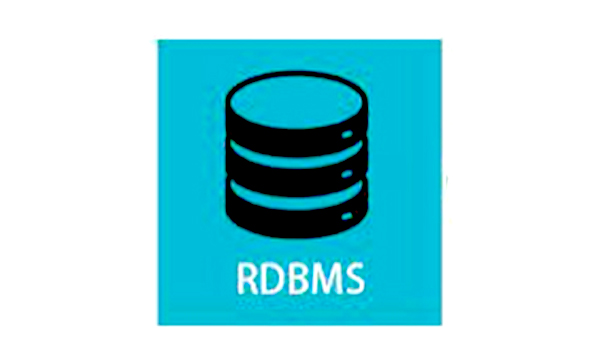Find Best RDBMS Software for Your Business
We help you find the right RDBMS Software for your business.

RDBMS Software
RDBMS Software, short for Relational Database Management System Software, is a type of software used to efficiently store and manage data in a traditional table format, where each piece of data is organized into rows and columns. These rows represent individual data points, while columns hold data of a single type or field, such as names, order numbers, or product image links. By establishing relationships between these data points, a cohesive structure is created, enabling connections between various data elements.
Features and Benefits of RDBMS Software:
RDBMS software provides a multitude of features that foster business growth and deliver effective data management solutions. These advantages encompass:
Crucial Data Management: Businesses rely on relational databases to maintain vital customer information, product data, financial details, and social data, ensuring seamless access and effective management of essential data.
Adaptability: RDBMS software finds application across various environments, from small-scale desktop applications with compact databases to expansive enterprise-grade data repositories.
Robust Query Language: Typically employing SQL (Structured Query Language) as its query language, RDBMS systems offer an efficient and standardized means of interacting with databases, underpinned by the reliability of ACID properties (Atomicity, Consistency, Isolation, and Durability) for transactions.
Structured Data Storage: Data is organized in a relational format, presented in rows and columns, simplifying the retrieval, modification, and deletion of data.
Relational Database Management System (RDBMS): This suite of tools and functionalities empowers IT teams and users to interact with and manage relational databases with efficiency.
Scalability: RDBMS efficiently handles vast datasets and supports concurrent usage by multiple users.
Data Manipulation: Core CRUD (Create, Read, Update, Delete) operations form the foundation of RDBMS, ensuring efficient and effective data management.
Data Integrity and Security: RDBMS incorporates features that safeguard data accuracy, consistency, and security, promoting a well-organized system with consistent data handling.
Distributed Database Support: RDBMS offers comprehensive support for distributed databases, effectively managing relationships between interconnected data tables.
Primary SQL Language: SQL serves as the principal means of accessing data, encompassing both data manipulation and data definition language statements.
Concurrent User Access: RDBMS employs sophisticated algorithms to facilitate concurrent user access to the database while maintaining data integrity.
Enterprise Security Management: RDBMS provides policy-based access and security management, an imperative feature for databases at the enterprise level.
Support for Database Administrators (DBAs): RDBMS assists DBAs in efficiently overseeing and monitoring database activities, including data loading and backup tasks through automated utilities.
Performance Monitoring: Log files meticulously track system performance, enabling the measurement of database usage, capacity, and query performance.
User-Friendly Interfaces: RDBMS incorporates graphical interfaces that empower DBAs to visualize database activity and system performance effectively.
Types of RDBMS Software
- MySQL: Open-source RDBMS for web applications.
- Oracle Database: Scalable and robust RDBMS for enterprise-level applications.
- Microsoft SQL Server: Versatile RDBMS for web, desktop, and enterprise solutions.
- PostgreSQL: Open-source RDBMS with advanced features and extensibility.
- IBM Db2: Enterprise-grade RDBMS for large-scale data handling.
- SQLite: Lightweight, file-based RDBMS commonly embedded in applications.
- MariaDB: Community-developed fork of MySQL with enhancements.
- SAP HANA: In-memory RDBMS for high-speed processing and real-time analytics.
- Teradata: Specialized RDBMS for large-scale data warehousing and analytics.
- Informix: RDBMS with a small footprint suitable for embedded systems.
- Sybase: RDBMS known for high-performance data processing.
- Firebird: Open-source RDBMS with cross-platform compatibility.
- Amazon RDS: Cloud-based RDBMS service by Amazon Web Services.
- Microsoft Access: Desktop-based RDBMS for small-scale applications.
- Google Cloud SQL: Fully-managed RDBMS service on Google Cloud Platform.